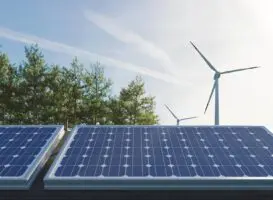A collaboration between Moroccan and German institutions will lead to the energy upgrade of 600 mosques in Morocco. The facilities will be equipped with with LED lighting, photovoltaic systems, and solar water heaters. While it has been a long time coming, signs are appearing that the Moroccan government will finally put in place regulations that will allow for a tariff to be paid for rooftop solar electricity fed into the grid.

Germany’s Gesellschaft fur Internationale Zusammenarbeit (GIZ) has announced that on behalf of the German Federal Ministry for Economic Cooperation and Development (BMZ), it supports the Moroccan partners in the implementation of a 2014 agreement on developing ‘green’ mosques in Morocco.
The program, titled Energy Efficiency in Mosques, started last year, runs up to March 2019 and bears a financial volume of €5 million ($5.62 million). It aims to modernize the energy use of Morocco’s mosques, and in its first phase running up to 2019 at least 600 mosques will be equipped with LED lighting, PV systems, and solar water heaters. This will result in significant savings for the Moroccan Ministry of Religious Affairs, which pays the electricity bills of 15,000 mosques nationwide.
However, the main objective of the program is “to raise public awareness of renewable energies and energy efficiency in Morocco and to create jobs,” said the GIZ. “The idea is to use mosques as a starting point for the diffusion of these technologies, hereby creating a market for private services in the field of energy efficiency that could afterwards be enlarged towards other public buildings in sectors such as education or health.”
The creation of a market for renewable energy and energy efficiency though requires domestic companies that provide these services. “Indeed, demand for services in this area remains low, and only a few local companies provide them, often with a workforce that lacks the skills to plan, install and maintain plants appropriately,” notes the GIZ.
For this reason, the program design is based on ‘energy-saving contracts’, meaning that Moroccan companies bear the financial and technical risks of the installations. Such service providing companies will be paid from the savings they achieve.
On its behalf, the GIZ will support the design of training programs on renewable energy and energy efficiency offering technical, management and marketing skills to Moroccan professionals and companies.
The same approach used in the Energy Efficiency in Mosques program will then be rolled out to other sectors, in an effort to create a solid market.
Remuneration policy framework?
Such innovative programs are always welcome and very significant in establishing a domestic market for renewable energies and rooftop solar PV specifically. However, Morocco has been criticized by some observers as being a country aims very high in terms of renewable energy targets but provides very little policy support to achieve them.
In the case of distributed solar, Morocco long had no remuneration policy scheme, be it a feed-in tariff (FIT), net-metering or self-consumption scheme, in place. While the program in the mosques will boost public awareness and visibility for the solar PV technology, it is equally important is to establish a national remuneration policy framework that encourages investors.
pv magazine understands that in advance of the COP22 summit, to be held in Marrakech in November, the Moroccan government is finally moving to clear the regulatory hurdles in the way of PV development. This could include introducing provisions under which households and building owners can receive feed in payments for electricity produced by rooftop PV systems.
However, similar critiques applies to the utility-scale PV sector in Morocco. The country has installed a very small number of PV systems, about 20 MW of capacity, and there are some plans for more PV installations. But there is not a remuneration policy scheme in place at this stage.
Morocco has set a national strategy to meet 42% (about 6 GW) of its national energy demand by 2020 via renewable energy sources, of which 14% (2 GW) is aimed to come from solar, including solar thermal plants.
Source: PV Magazine. Reproduced with permission.








